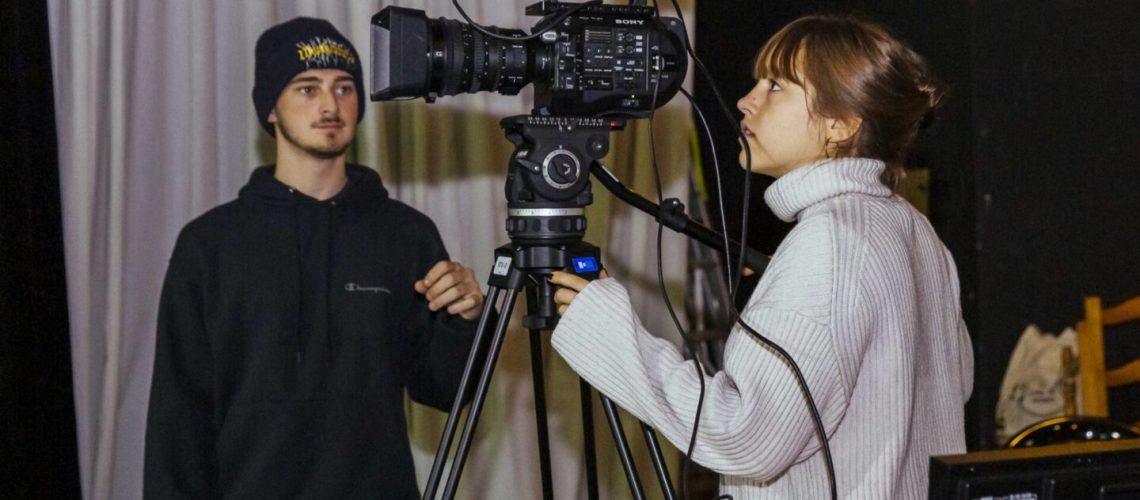Becoming a videographer in France is an easily achievable goal, thanks to a variety of specialized and recognized training courses. Whether you’re attracted by prestigious schools like La Fémis, state-run grandes écoles like ENS Louis-Lumière, or renowned institutions like GOBELINS, each of the courses suggested in this article offers essential skills for success in videography.
University courses such as the Master’s degree at Paris 1 Panthéon-Sorbonne and the Licence SATIS at Aix-Marseille University provide a solid theoretical and practical foundation. Find out which options best match your creative and professional aspirations. At the end of the article, Julien GEAY, founder of Solid Rusk Production and videographer, answers the famous “prestigious school vs. school of life” debate.
Table des matières
TRAINING TO BECOME A VIDEOGRAPHER IN FRANCE
To become a videographer in France, there are several high-quality training courses available, ranging from specialized schools to university courses. Here are a few recognized options.
La Fémis (École nationale supérieure des métiers de l'image et du son)
Located in Paris, La Fémis is a prestigious film school founded in 1986. It is renowned for its comprehensive training in the cinema professions: directing, production, scriptwriting, image, sound, editing and set design.
It offers a directing curriculum that can be highly relevant to becoming a videographer, including a residency program and ongoing training for professionals. At La Fémis, students make films that often win awards at international festivals. The school collaborates with numerous institutions and companies in the film industry.
For more information, visit the La Fémis website.

L'École nationale supérieure Louis-Lumière
Also based in Paris, the École nationale supérieure Louis-Lumière, located in Saint-Denis, is a leading public school dedicated to cinema, photography and sound. Founded in 1926, it offers top-level training in these fields, including masters degrees in film, photography and sound. The film curriculum is particularly well suited to those wishing to specialize in videography.
The school is renowned for its modern facilities, industrial partnerships and renowned teaching staff. It also emphasizes research and innovation, offering a wide range of programs for students and professionals alike. And best of all, tuition is free for all 150 students.
For more information, visit the ENS Louis-Lumière website.
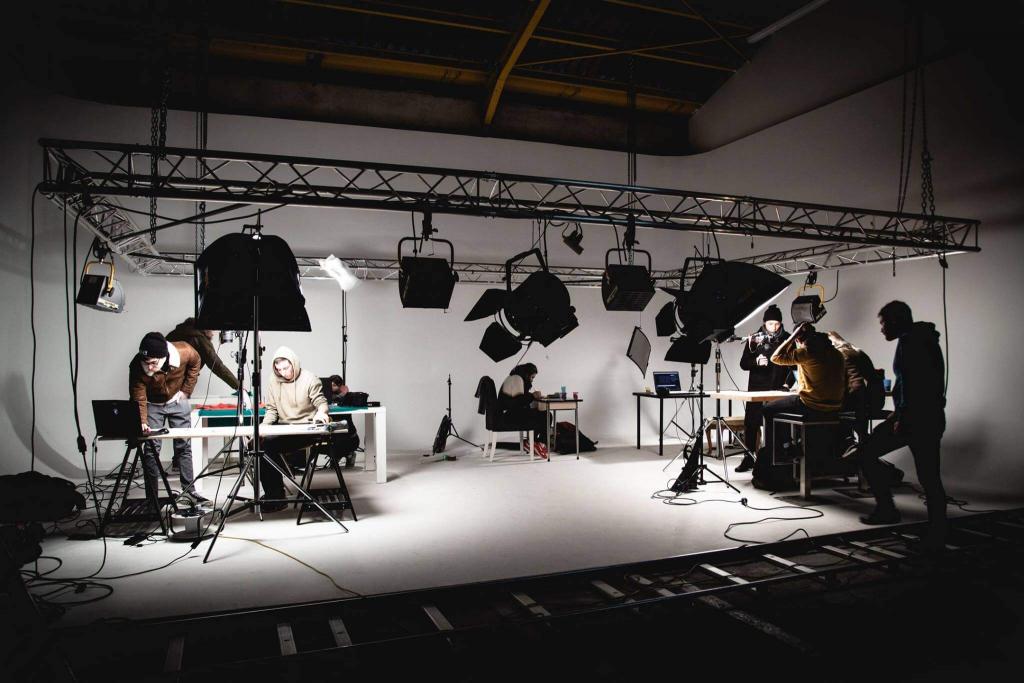
L’École Supérieure de Réalisation Audiovisuelle (ESRA)
ESRA (École Supérieure de Réalisation Audiovisuelle), founded in 1972, offers training in film, audiovisual, sound and 3D animation professions. The ESRA group awards state-approved diplomas at Bac+3 and Bac+5 levels, and offers professional training programs as well as introductory courses for high school students. Campuses are located in Paris, Rennes, Nice, Brussels and New York. The school boasts an extensive alumni network and numerous partnerships.
For more information, visit the ESRA website.
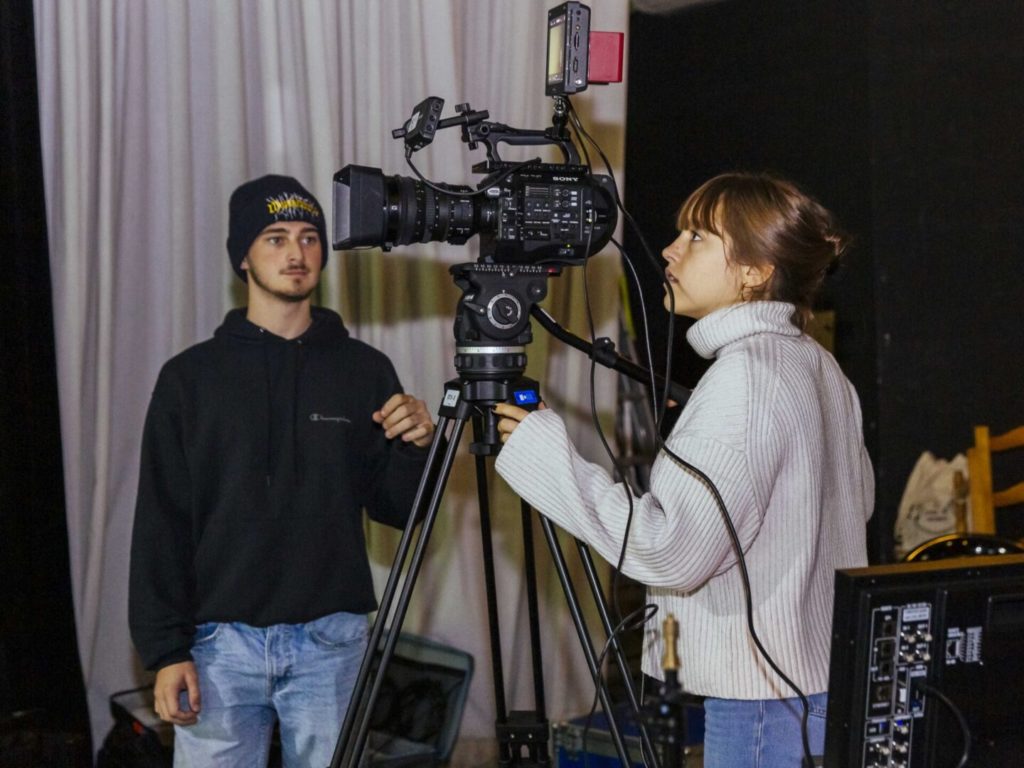
Université Paris 1 Panthéon-Sorbonne
The University of Paris offers a Master’s degree in Cinema and Audiovisual Studies , which can provide a sound theoretical and practical basis for becoming a videographer.
The course combines theory, practice and preparation for the film industry. The Master’s program offers two tracks: “Cinema, aesthetics and creation” and “Screenwriting, directing and production”. Courses cover subjects such as film aesthetics, research methodology and audiovisual production. Students can also take part in international exchanges, and are supervised by industry professionals.

Gobelins, l'école de l'image
Les GOBELINS, the renowned Paris-based image school, offers specialized training in animation, print and multimedia communication, graphic design, interactive design, video games, photography and sound.
Founded in 1963, it is renowned for its academic excellence and state-of-the-art facilities. Curricula include Bac to Bac+5 diplomas and professional programs.
For more information, visit the GOBELINS website.
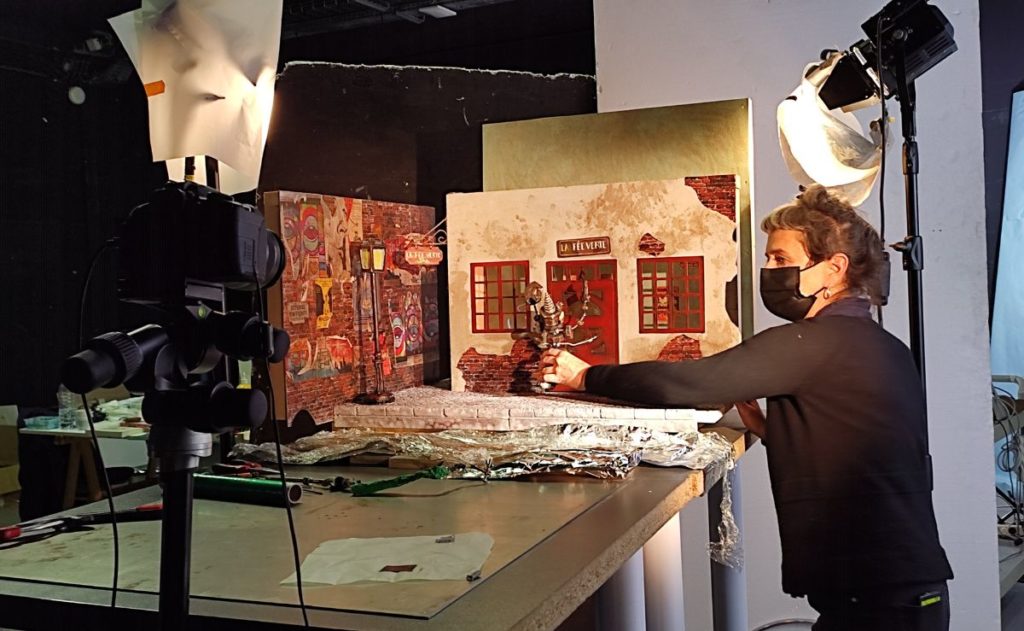
SATIS (Sciences, Arts et Techniques de l’Image et du Son) à Aix-Marseille Université
Aix-Marseille University’s Science and Technology Bachelor’s degree in Science, Arts and Techniques of Image and Sound (SATIS) offers a balanced mix of theory and practice in the audiovisual field. Students acquire skills in production, directing and audiovisual techniques through hands-on projects and internships. The course covers a solid scientific foundation and develops a sense of artistry and teamwork.
For more information, visit the SATIS Bachelor’s degree website.
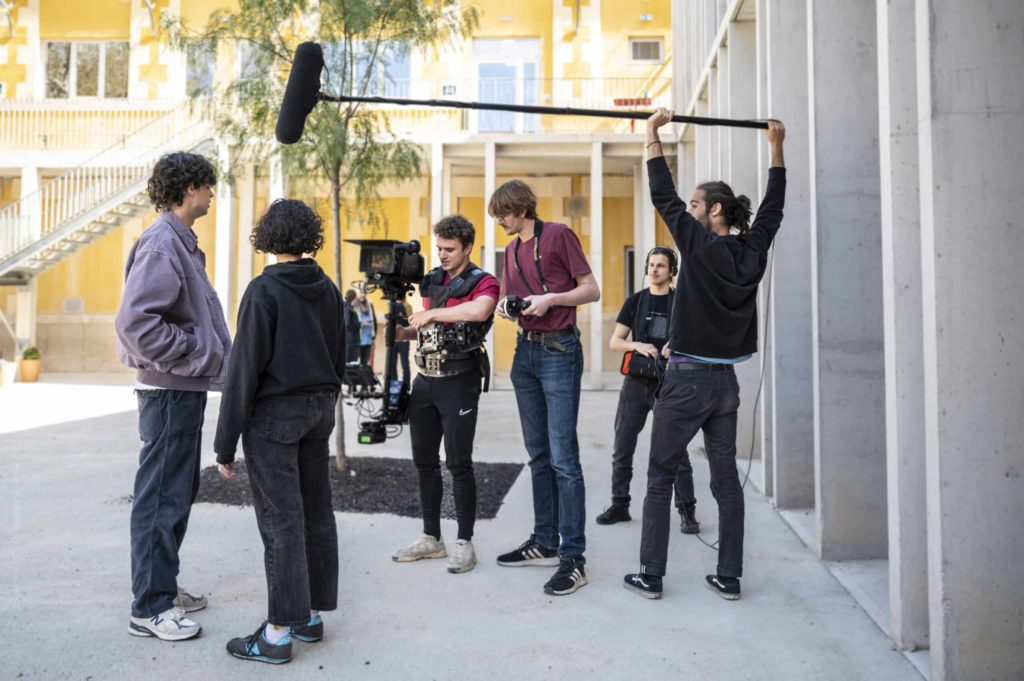
These courses vary in length, specialization and perspective, so it’s important to choose the one that best suits your professional ambitions and creative style.
For those who prefer a more flexible approach or are unable to follow a traditional training course, there are many online training and certification options for becoming a videographer. These are often updated and include interactive resources to help you learn more effectively. They’re perfect for those just starting out, or for professionals looking to broaden their skills.
Plutôt team formation ou team self made man ?
Julien GEAY, founder of Solid Rusk : “The training courses and audiovisual schools presented above will provide you with an essential theoretical foundation on which to build your artistic vision and develop your critical sense, freeing you from technical constraints.
Having said that, most of my acquaintances, fellow videographers, started out in the industry in a self-taught way, trying things out, working on the side to buy this or that equipment, working for free but above all making mistakes. Some are more painful than others, but they’re also very instructive.
If you want to become a videographer and you’re not in a hurry, or don’t have the funds to pay for these training courses, my one and only recommendation is this: Buy a camera, a computer and start filming and editing.
There’s room for everyone on the market. And the Internet is a great tool for acquiring the basic knowledge you need to make great videos. You’ll need rigor, but above all an inquisitive mind coupled with a deep vocation for “doing things right”.
The road will be longer, but the destination will be all the tastier.
It’s up to you!”
